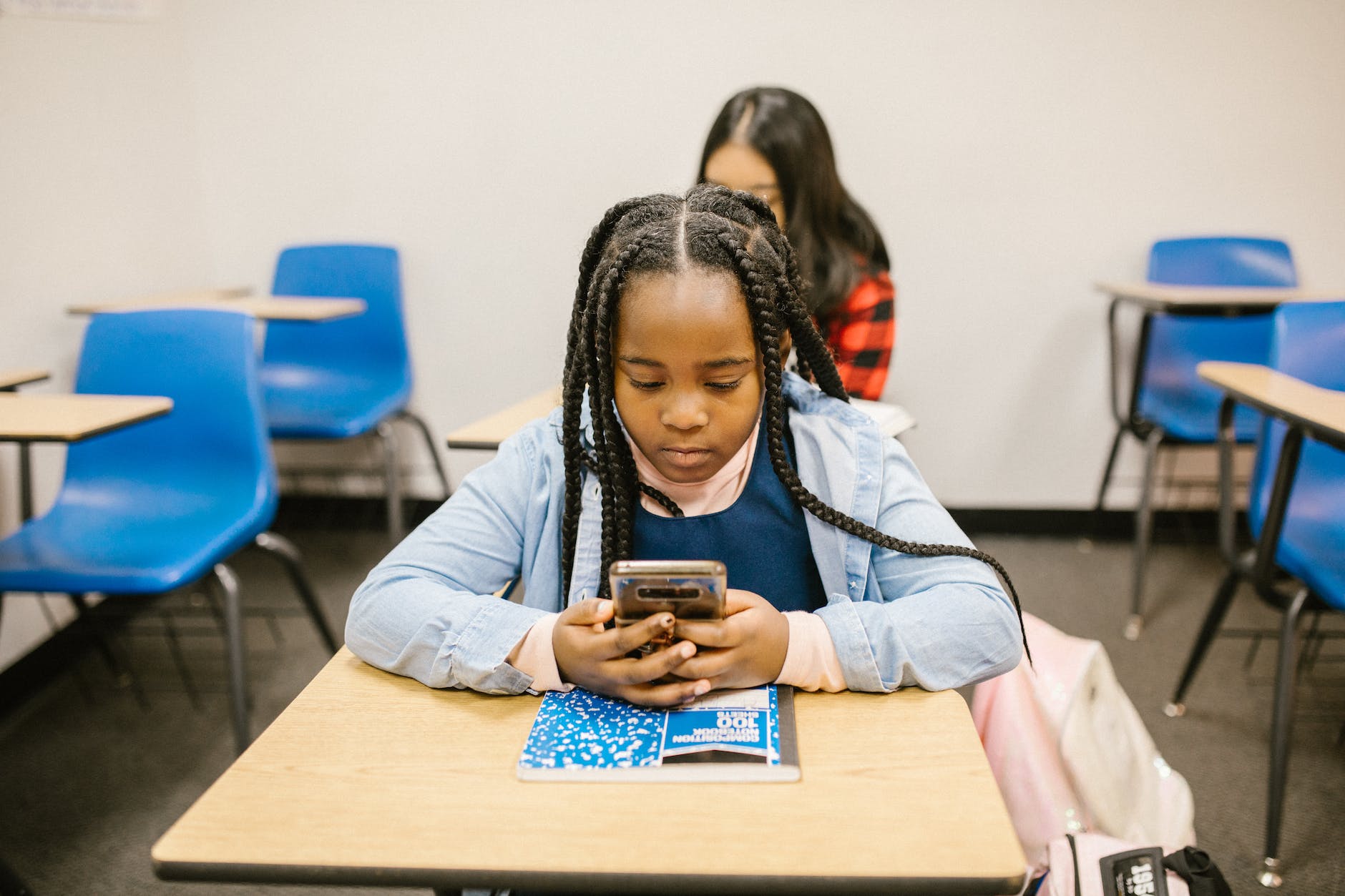There’s a familiar push and pull that happens in my house with regard to kids and tech use. My husband and I begin with the best of intentions, giving our children access to some device — which they immensely enjoy. Maybe we want them to take an online class; or to be able to reach us on Whatsapp when we are at work; or the school term has been draining and we feel they deserve some down time on TV. May be it’s even a little peer pressure from, “But everyone in my class has a phone!”
But sooner or later, the tech becomes a problem either due to overuse/dependency or misuse. The kids cannot hear when you are talking to them because their eyes are glued to a screen or they are on headphones. Homework doesn’t get done because people got carried away watching cartoons. Or the kids are accessing games and videos they really aren’t supposed to be accessing on the internet. One time the young chap even installed a VPN on his tablet – without our knowledge.
Every time there is a misuse of tech, we revoke privileges, switch off the TV, stash away the tablets, put parental controls on the phones, hide gaming controllers… you get the drift.
Parent’s fears
I marvel at parents who give their children unrestricted unsupervised unmonitored time on the internet. How do they not panic? How did the build such a high trust level? How are there kids not pushing the boundaries?
You can imagine my comfort when I read research by Safehome.org that said the biggest fear by today’s parents is the internet/social media. And this fear not just for parents of teenagers and pre-teens but also of those with younger kids ages 7-9.
“Every parent sees it coming and few know what to do about it. Parents don’t want their children to disappear into phones,” commented Jon Haidt and Zach Rausch in an article for Substack.
Some mothers I spoke to said their biggest fears with regard to tech are addiction, access to unfiltered content, peer pressure, secularism, interference with relationship building and lack of appropriate Christian content for older kids.
Aside from these, I have two other concerns: One is about giving someone I do not know (Mr Unspeakable, may be) four/six/10 unfiltered hours of my child’s total concentration. What is he impacting on my pre-teen? Secondly, I worry about the sedentary lifestyle that comes with tech addiction. Take me back to the kids that climbed trees and trapped locusts and birds.
Tech blackhole
Research shows that smartphones have a variety of detrimental effects on child development including increase in addictive behaviours, reduction of sleep, loss of focus and less time with friends.
Sapien Labs, a non-profit research foundation with the goal of understanding how the rapidly changing social and technological environment is changing human brains and minds, says among their most important recent findings is that in all the regions they’ve studied, mental health is worst for the youngest generations.
In a new report, Sapien Labs says the younger the age of getting the first smartphone, the worse the mental health that young adult reports today.
The foundation surveyed young adults between ages 18 and 24 on the age they acquired their first smartphone or tablet.
“They found a consistent pattern: the younger the age of getting the first smartphone, the worse the mental health that the young adult reports today. This is true in all the regions studied (the survey is offered in English, Spanish, French, German, Portuguese, Arabic, Hindi, and Swahili), and the relationships are consistently stronger for women,” write Haidt and Rausch.
The younger the age of getting the first smartphone, the worse the mental health that the young adult reports today.
Say what!!
Social scientists have for a while been trying to understand why the first global generation to grow up on smartphones is also the first global generation to have lower well-being than the one before them.
David G. Blanchflower in the Journal of Population Economics shows that across nearly all nations, happiness is U-shaped. Meaning young adults and people in their 60s and 70s are the happiest, with a dip in middle age. But Haidt and Rausch say that is changing as Gen Zs (born in and after 1996) enter young adulthood.
“You can see the sudden collapse of young adult mental health.”
Elia Abi-Jaoude, Karline T. Naylor and Antonio Pignatiello, in an article in the Canadian Medical Association Journal, noted that the proportion of teenagers reporting mental distress increased from 24 percent in 2013, to 34 percent in 2015 and to 39 percent in 2017. Inpatient hospital admissions of children and adolescents for mental health reasons increased substantially across Canada between 2007 and 2014, while admissions for other medical conditions in this age group fell by 14 percent.
What changed in the early 2010s that could have rapidly reduced the mental health of teens around the world, with a bigger impact on girls?
Haidt and Rausch argue that the sudden switch of teen social life from flip phones (which are designed for communication) to smartphones (which enabled continuous access to social media and much higher levels of phone addiction), is the major cause.
The data from the Sapiens Lab survey shows kids who got their first smartphone before they were 10 years old are doing worse, on average, than those who didn’t get one until they were in their teens. The most mentally healthy respondents are those who did not get a phone until their late teens.
The slope is steeper for young women than for young men. The Gen Z women who got their first smartphone before they were nine years old are in negative territory, the authors of the paper note.
Other research has shown that heavy smartphone use and media multitasking among the youth results in impulsivity, chronic sleep deprivation, and difficulties in cognitive-emotion regulation, poor academic performance due to impaired cognitive, addiction to social networking, shyness and low self-esteem.
The study published in the Canadian Medical Association Journal in February 2020 showed that social media can affect adolescents’ self-view and interpersonal relationships through social comparison and negative interactions, including cyberbullying. Moreover, social media content often involves normalisation and even promotion of self-harm and suicidality among youth, says Abi-Jaoude et al.
Yehuda Wacks and Aviv M. Weistein in an article published in Frontiers Psychiatry on May 28, 2021 conclude that excessive smartphone use is associated with psychiatric, cognitive, emotional, medical and brain changes that should be considered by health and education professionals. They list depression, anxiety, OCD, ADHD and alcohol use disorder as comorbidities
Two other surveys of American and German university students, found that students who spent more time on Facebook were more likely to endorse feeling envy or sensing that others in their social network were better off than they were.
The Sapien Labs report shows there is a cumulative effect of having had a smartphone (and its many apps) over many years of childhood.
And the Canadian researchers corroborate that girls tend to spend more time on social media than boys, have more exposure to cyberbullying and show tendency to experience more mental health effects, which is consistent with recent epidemiologic trends indicating that depressive symptoms, self-harm and suicidality have increased among young females in particular.
Warning bell
What is clear is that the internet is not a neutral place for your children to roam through, even with parental guidance. We are just starting to see the effects on young adults.
Haidt and Rausch are sounding a warning bell for parents with children below age 14 to reconsider smartphone use in their children.
“The concern is to protect children before and during early puberty from smart phone use. The Sapien Labs findings should motivate us to think carefully about whether and when to give children their own smart devices, especially before high school,” they write.
The World Health Organisation recommends that children between two- and four-years-old spend no more than an hour a day in front of a screen.
The researchers are suggesting that parents who wish to reach their children when they are away from home offer a “dumbphone”.
“We suggest that parents not give smartphones as first phones. Let children learn to master a simpler kind of phone, one that cannot be loaded with addictive apps.”
They also suggest formation of parent groups where parents in a school or area who pledge not to give smartphones to their children until say high school, so that the child has a community of peers and will not feel isolated.
The parents I spoke to said they have installed parental control software on devices that children access, giving them ability to control and monitor what apps are being accessed and for how long and to control the length of time of use. Google’s Family Link even allows a parent to log off a device remotely. Other parents said what works is having TV/tech access days or time and sticking religiously to the set limits.
“My biggest concern is exposure to content that is not age appropriate and also that propagates pop culture. This is because I am trying to instill a biblical worldview,” said Alice, in Nairobi.
“I try to keep a keen eye on what my son is watching. I have installed parental controls. I talk to all adults in the house about what is allowed. I talk to my son about what he is watching and what he is not allowed to watch,” she added.
For Maureen who has a teenager, she says putting parental controls doesn’t help because her biggest concern is exposure to social media.
“ I try to encourage on certain stuff that can be watched but I can’t do that all the time. What has helped a bit is that she doesn’t have a personal phone. She uses a tablet that is public so I get to see what she is up to,” Maureen said.
I’d say there is a gap for wholesome brands that we can trust with the older kids. Once they are weaned off Cocomelon and Blippi, where do they go apart from watching the Royalty Family upgrade homes?
How are you building healthy digital device use in your home? Share with fellow readers on the comments.




Love the insights. We must grapple with the sin that so easily entangles, we must be aware of the traps set for us and our children.
Absolutely